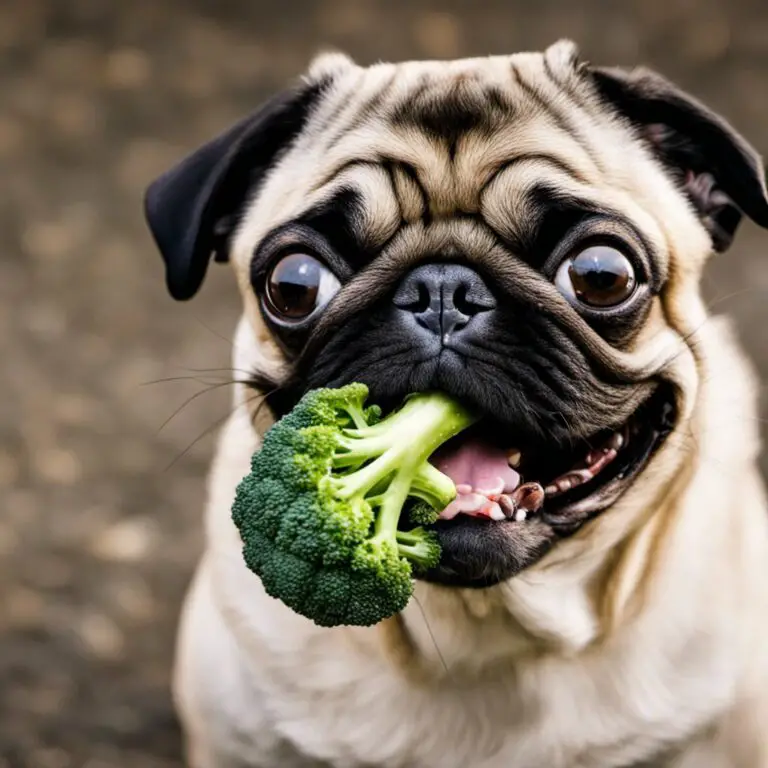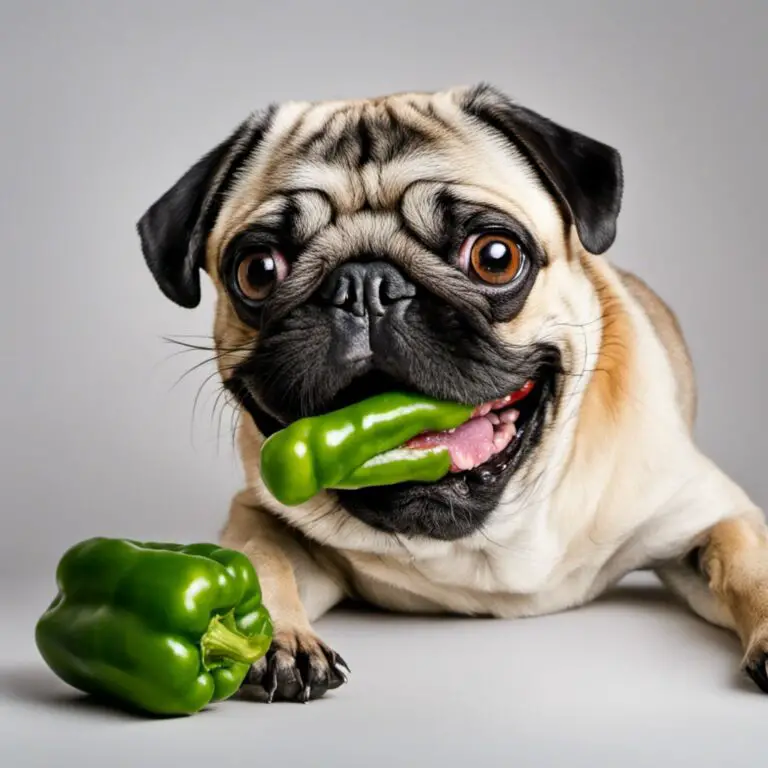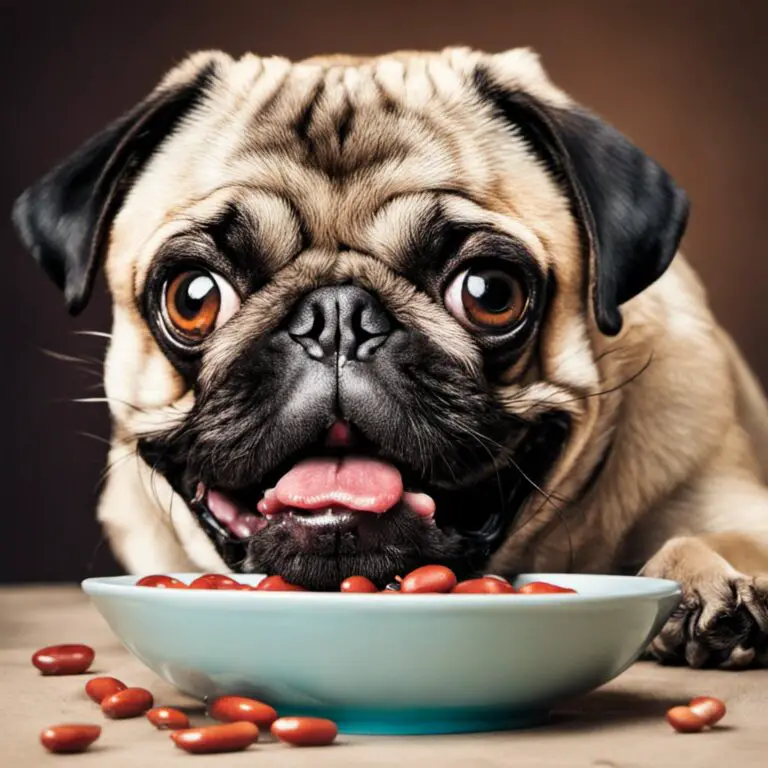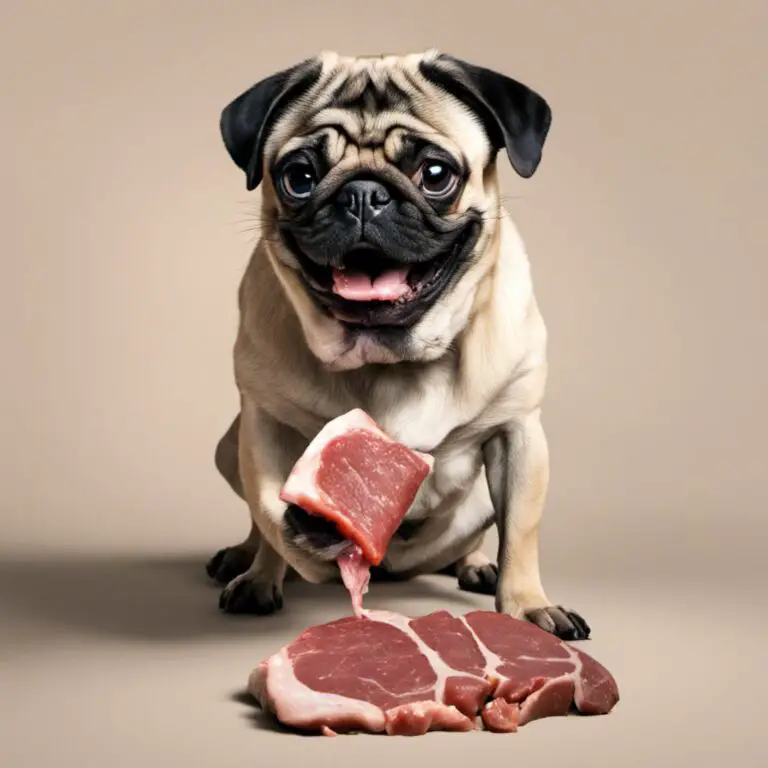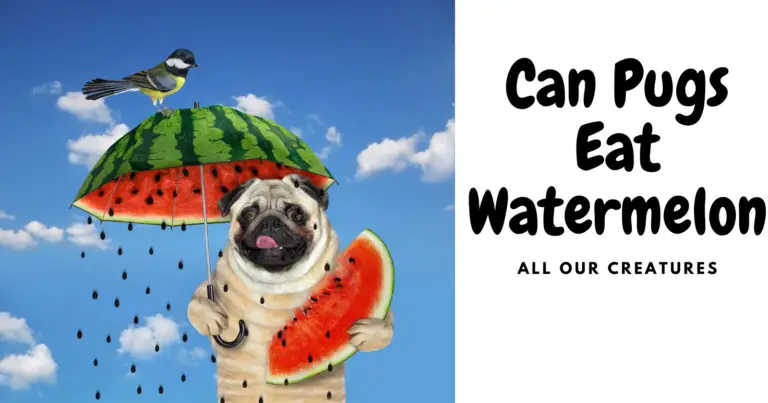Can Pugs Eat Mushrooms? A Clear and Knowledgeable Guide for Dog Owners
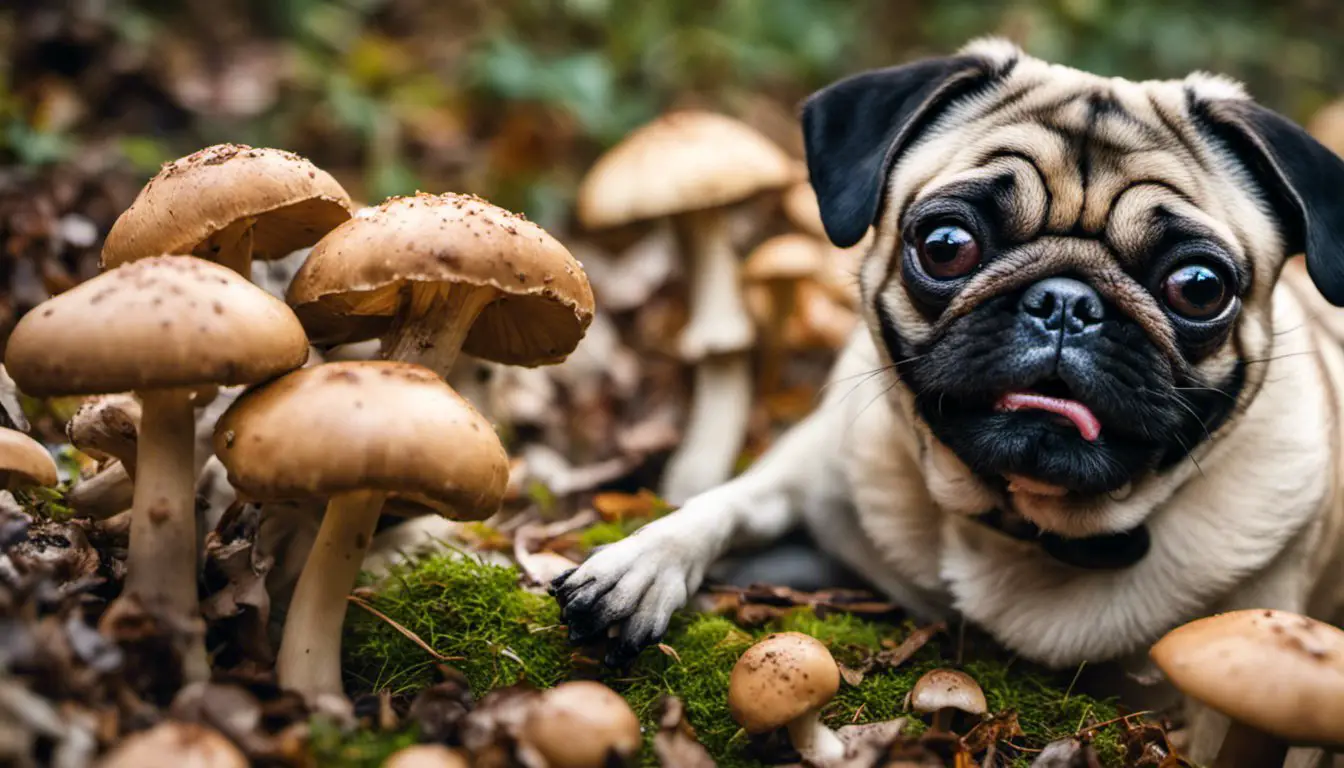
As a pug owner, you may often wonder about certain foods’ dietary restrictions and safety. One such food item is mushrooms. With your adorable pug sniffing around your yard, park, or garden, it’s natural to ask: Can pugs eat mushrooms?
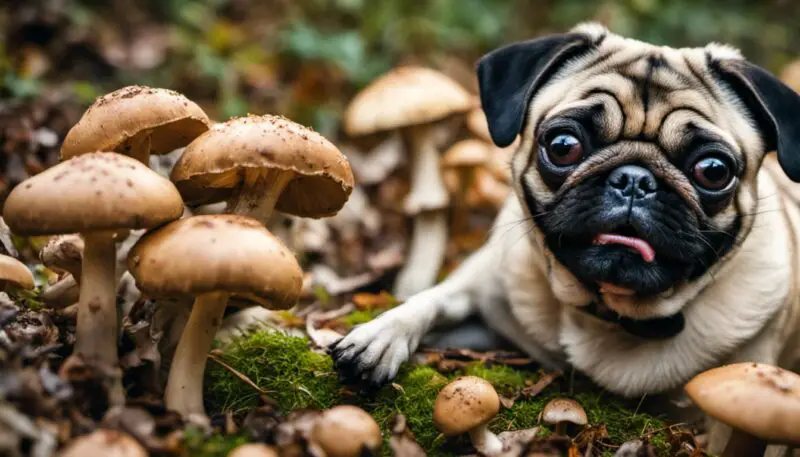
When it comes to store-bought mushrooms, the answer is yes, pugs can eat them. These mushrooms are safe for humans and dogs, so you can share a few pieces of cooked mushrooms with your furry friend without worrying. However, paying attention to wild mushrooms is crucial, as they can be toxic to dogs just as they are to humans. Ensure your pug stays away from wild mushrooms outdoors, as ingesting these could lead to serious health issues.
Understanding the nuances of a pug’s diet is essential for their well-being, and being knowledgeable about their food choices will enable you to make better decisions on what you should or shouldn’t feed them. Take note of the safe and unsafe mushrooms, and always ensure your pet is consuming the right foods for a healthy and happy life.
Contents
Table of Contents
Pugs and Their Dietary Needs
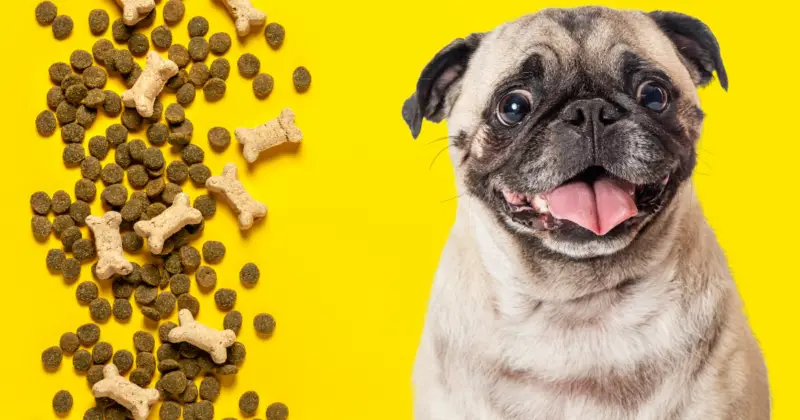
As a pug owner, it’s essential to be aware of your furry friend’s dietary needs. Like all dogs, pugs require a balanced and diverse diet to thrive and stay healthy. Keeping this in mind, it’s crucial to provide your pug with a diet that is high in essential nutrients, vitamins, protein, and other vital elements.
Get The Free Food Eating Guide That Keeps My Pug Happy and Playful Even at 13 Years Old
100% Beginner Friendly & Lists Real Foods Your Pug Can Actually Eat!
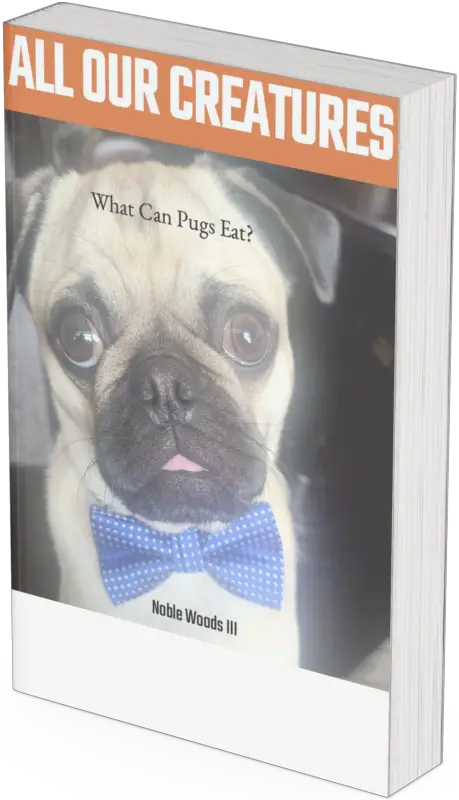
When considering your pug’s diet, remember that this breed has specific nutritional requirements. Your pug needs a balanced diet to maintain its health and prevent potential health issues. It is vital to incorporate a variety of foods rich in essential nutrients like copper, thiamin, zinc, Vitamin A, Vitamin B, amino acids, folate, selenium, pantothenic acid, potassium, iron, enzymes, and riboflavin.
Some mushrooms, such as Shitake, are good for your dog as they contain substantial amounts of protein and other vital nutrients.
Introducing new foods to your pug’s diet should be done cautiously. It’s important to monitor your dog’s reaction to any new ingredients to ensure they don’t have any adverse effects. Always consult your veterinarian before adding new elements to your pug’s diet, as some foods may not suit their specific needs.
Remember, maintaining a healthy diet for your pug involves balance. While it’s important to include a variety of nutrient-rich foods to support their well-being, moderation is key. Overfeeding or providing too many treats can lead to weight gain and potentially harmful health issues.
Stick to meals that are specifically designed for pugs, like Royal Canin Breed Health Nutrition Pug Dry Dog Food, which caters to their unique dietary needs and helps them maintain an ideal weight.
In summary, providing your pug with a diverse and balanced diet is crucial for their overall health and well-being. By including essential nutrients and monitoring new foods’ introduction, you can ensure your pug’s diet supports their growth and overall health.
Can Pugs Eat Mushrooms
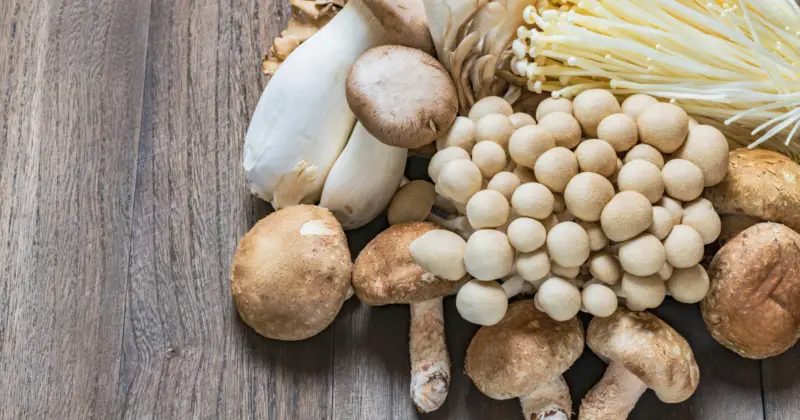
When it comes to feeding your pug, you might wonder if mushrooms are a safe and healthy choice. Store-bought mushrooms, such as portobello, button, and maitake, are safe for dogs, including pugs. However, it’s important to understand that mushrooms are not a necessary part of their diet and should only be given in moderation.
Store-bought mushrooms are generally non-toxic to dogs, and some pugs may enjoy them as a tasty treat. Before giving mushrooms to your pug, make sure to wash and cook them thoroughly. Cooking makes the mushrooms more digestible and eliminates any potential contaminants.
While store-bought mushrooms are safe, keeping your pug away from wild mushrooms is crucial. Wild mushrooms can be highly toxic and damaging to your pug’s health, causing serious issues such as kidney and liver failure. If your pug accidentally ingests a wild mushroom, contact your veterinarian immediately.
In conclusion, remember to:
- Only feed your pug store-bought mushrooms like portobello, button, and maitake.
- Thoroughly wash and cook the mushrooms before serving.
- Keep your pug away from wild mushrooms since they can be extremely toxic.
By following these guidelines, you can safely offer mushrooms as an occasional treat for your pug while ensuring their health and well-being.
Can Pugs Eat Wild Mushrooms
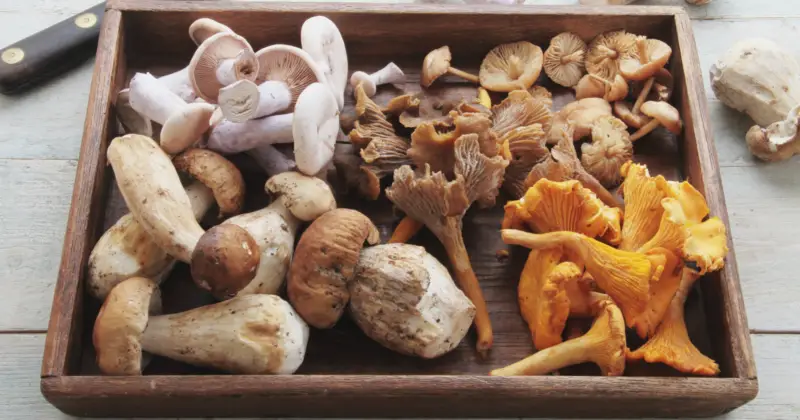
Wild mushrooms can be risky when it comes to dogs, especially pugs. While there are about 50,000 mushroom species worldwide, only 50-100 of them are known to be toxic. However, the poisonous ones can cause severe harm or even be fatal to your pug.
The Amanita phalloides, also known as the death cap, and the Galerina marginata, a deadly webcap, are two poisonous mushrooms that can be particularly dangerous. If your pug ingests these, they may experience symptoms like vomiting, diarrhea, and abdominal pain. Keep an eye on your dog when outside and remove any wild mushrooms from areas they frequent.
As a responsible pug owner, it is best to avoid feeding them any wild mushrooms. The risks associated with these fungi are just too high to be worth the potential benefits. If you want to give your pug some mushrooms, purchase safe, store-bought varieties like white button or portobello mushrooms from a trusted source.
In case your pug accidentally eats a wild mushroom, monitor them for any symptoms and contact a veterinarian immediately. Early intervention can mean the difference between life and death. You can ensure their safety and well-being by preventing your pug from consuming wild mushrooms.
Symptoms of Mushroom Poisoning in Pugs
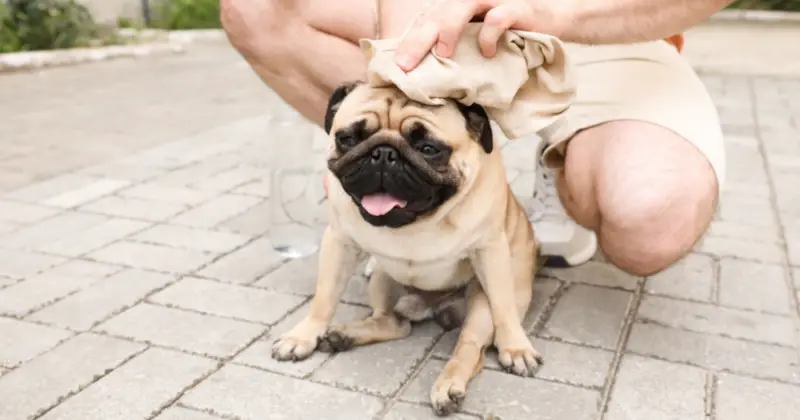
If your pug ingests a poisonous mushroom, it may exhibit a range of symptoms that can indicate mushroom poisoning. It’s essential to be aware of these signs to seek prompt treatment for your furry friend.
Your pug might experience immediate gastrointestinal upset like vomiting and diarrhea. These symptoms can appear within 15 to 30 minutes or up to 12 hours after ingestion. Alongside these, abnormal drooling or excessive salivation may occur. Additionally, your pug could show signs of weakness, lethargy, and uncoordinated movements, making them appear clumsy or disoriented.
Another concerning symptom to watch out for is the presence of seizures. This neurological sign could indicate that your pug has ingested a toxic mushroom. If left untreated, the condition may even progress to a coma.
Furthermore, you might notice abdominal pain in your pug. Pain or discomfort in the stomach area can be a sign of mushroom poisoning. Your pet might whine, appear restless, or exhibit changes in their posture, such as an arched back or hunched stance.
In more severe cases, poisonous mushrooms can lead to liver failure. One sign of this could be the yellowing of the skin, also known as jaundice. If the liver is affected, it can also result in kidney failure, making the situation even more critical.
Recognizing the symptoms of mushroom poisoning in your pug is crucial for taking swift action. If you notice any of these signs, contact your veterinarian immediately. The sooner your pet receives proper treatment, the better their chances of recovery.
Other Foods Pugs Should Avoid
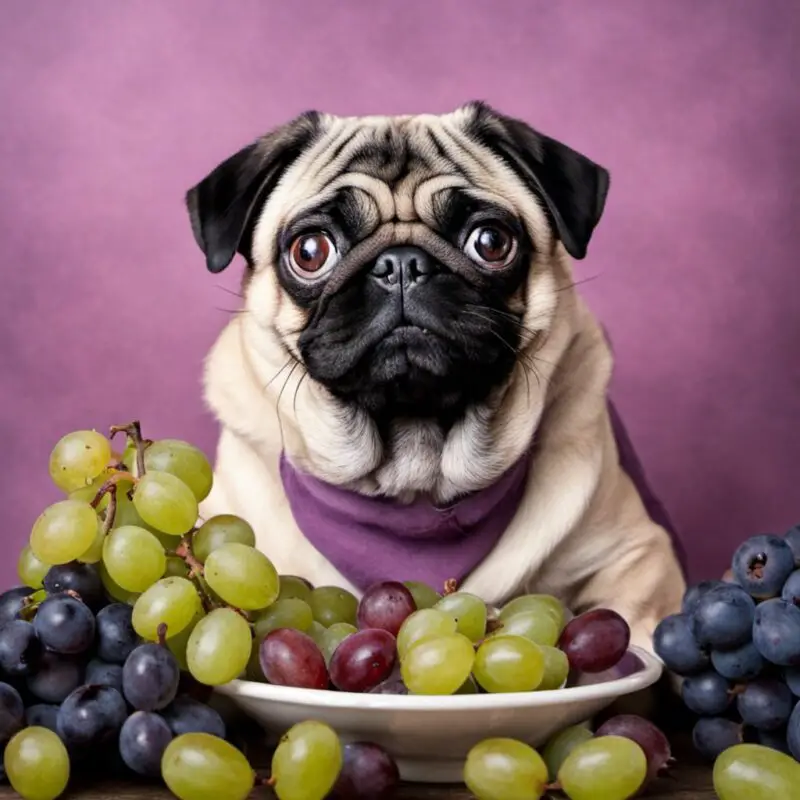
Apart from mushrooms, there are several other foods that you should avoid feeding your pug. A well-balanced, nutritious diet is crucial to ensure your pet’s long-term health and wellbeing. Here, we discuss some other common foods that are potentially harmful to pugs.
Onions and Garlic: Members of the Allium family, including onions, garlic, leeks, and chives, can be toxic to pugs. They can cause gastrointestinal irritation and even lead to red blood cell damage in your dog.
Grapes and Raisins: Consumption of grapes and raisins can result in acute kidney failure in pugs. Even a small number can lead to serious health complications, and it is best to avoid feeding them these fruits altogether.
Tomatoes and Green Tomatoes: Tomatoes, especially green tomatoes, contain a toxic substance called solanine, which can lead to gastrointestinal upset in pugs. It is recommended to steer clear of feeding your pet tomatoes.
Avocados: Avocados contain a toxin called persin, which can cause vomiting, diarrhea, and even more severe issues if consumed in large quantities. Keep avocados away from your pug to prevent any adverse reactions.
Caffeine: Beverages containing caffeine, such as coffee and tea, can be detrimental to your pug’s health. Caffeine can lead to increased heart rate, tremors, and other complications when ingested by your pet.
Macadamia Nuts: Macadamia nuts can be toxic to pugs, causing symptoms such as vomiting, weakness, and hyperthermia. It is important to keep these nuts out of reach and not include them in your pug’s diet.
Chocolate: Chocolate contains a substance called theobromine, which is dangerous and poisonous to pugs, especially in large quantities. Dark chocolate is particularly harmful, as it contains higher levels of theobromine.
Alcohol: Alcoholic beverages can cause severe intoxication in pugs, leading to symptoms such as vomiting, tremors, and even organ failure. Never offer your pet alcohol, and ensure it remains out of their reach.
Xylitol: Xylitol is a sugar substitute often found in sugar-free candy, gum, and other products. Ingestion of xylitol can lead to rapid insulin release, causing hypoglycemia and potentially even liver failure in your pug. Always check product labels and avoid feeding them items containing xylitol.
You can ensure their long-term health and happiness by avoiding these harmful foods and providing your pug with a well-balanced diet. Consider these precautions when preparing your pug’s meal or sharing some of your food with them.
Can Pugs Eat Mushrooms? Watch this
Beneficial Foods for Pugs
When it comes to ensuring the health and happiness of your pug, it’s essential to provide them with a nutritious diet. There are several fruits, vegetables, and treats that are not only safe for pugs but also beneficial to their overall health. Here’s a list of some of the best options for your furry friend.
Fruits: Pugs can enjoy many types of fruits as an occasional treat or in small amounts due to their high sugar content. Some great options include apples, blueberries, strawberries, and raspberries. Apples are a good source of fiber and vitamin C, while berries provide antioxidants that can help boost your pug’s immune system.
Vegetables: Incorporating vegetables into your pug’s diet can provide them with essential vitamins and minerals. Safe and nutritious options include carrots, broccoli, and sweet potatoes. Carrots are an excellent choice as they are rich in fiber and beta-carotene, promoting healthy digestion and eye health. Broccoli contains beneficial nutrients and can be fed in small amounts, while sweet potatoes are an excellent source of dietary fiber and vitamins.
Grains: Adding whole grains like oats and corn to your pug’s meals can offer additional nutrients and variety. Oats are a fantastic fiber and protein source, whereas corn provides energy through carbohydrates.
When introducing new foods into your pug’s diet, remember to do so gradually to avoid upsetting their stomach. Keep portions small, ensuring the majority of their diet consists of high-quality dog food formulated for their specific needs. By offering your pug a variety of beneficial foods, you’ll help them maintain a healthy weight, strengthen their immune system, and keep them feeling their best.
Introducing New Food in Your Pug’s Diet
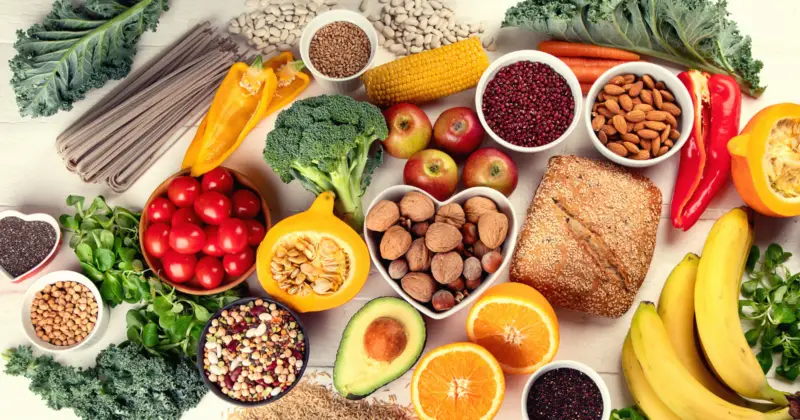
When introducing new foods into your pug’s diet, it’s essential to maintain a balance and ensure the food is safe and healthy for your pet. Before making any changes, consult with your veterinarian to confirm that the new food is appropriate for your pug.
For instance, pugs can consume store-bought mushrooms, such as chanterelle, morel, and porcini, but remember that they don’t require mushrooms in their diet. Always avoid feeding your pug wild mushrooms, as they can be toxic.
To gradually introduce new foods, follow the 25-50-75 rule:
- Day 1: 25% new food mixed with 75% old diet
- Day 3: 50% new food mixed with 50% old diet
- Day 5: 75% new food mixed with 25% old diet
- Day 7: 100% new food
Transitioning slowly helps minimize the risk of digestive upset for your pug, especially if they have a sensitive stomach.
Besides store-bought mushrooms, you can diversify your pug’s diet with an array of safe food options, such as specific fruits, vegetables, and eggs. Always introduce these new foods in small amounts, so your pug can get used to them.
Treats should not make up more than 10% of your pug’s total daily calorie intake. Providing your pug with a well-balanced and nutritious diet will ultimately help them maintain a healthy weight and lead a happier, healthier life.
Pug Diet Considerations
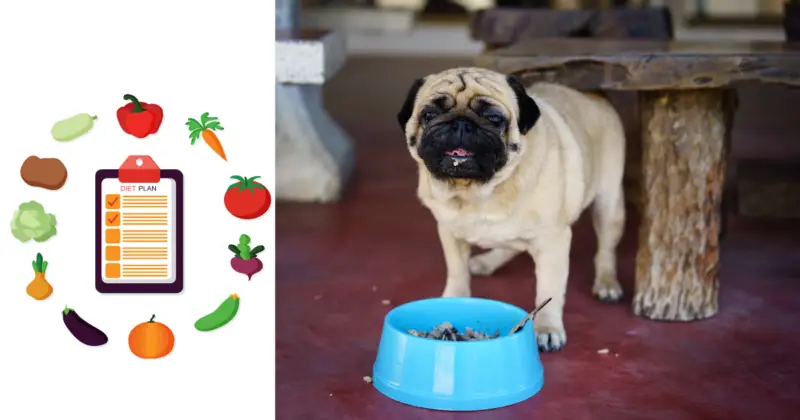
When planning your pug’s diet, it is essential to maintain a balance in their meals, providing them with all the necessary nutrients, proteins, and calories they need to thrive. A balanced diet can be achieved through a combination of dry dog food, homemade dog food, and specific human foods safe for pugs.
One important aspect of your pug’s diet is protein intake. Protein sources like eggs are perfectly safe for pugs and offer essential nutrients that promote healthy muscle development and overall well-being. However, remember to cook the eggs and avoid feeding raw eggs to your pet, as raw eggs can increase the risk of bacterial contamination.
Offering your pug a high-quality dry dog food, such as Royal Canin Breed Health Nutrition Pug Dry Dog Food, helps cater to their specific nutritional needs. This type of kibble is designed to be easily picked up by your pug’s flat face and blunt nose, ensuring a comfortable eating experience.
Incorporating homemade dog food into your pug’s diet allows for additional control over the ingredients and nutrition they receive. While preparing homemade meals for your pug, always consider their unique dietary requirements. Strive to include various proteins, veggies, and fruits that your pug can safely consume.
Finally, let’s discuss mushrooms. Some mushrooms, like Shitake, are safe and can provide beneficial nutrients such as vitamins A and B, pantothenic acid, and minerals like potassium, zinc, and iron. However, always ensure you are serving your pug-cooked, non-toxic mushrooms in moderation, and avoid wild or unidentified mushrooms that can be hazardous to their health.
By taking the time to understand your pug’s specific dietary needs and incorporating a balance of proteins, veggies, and fruits into their diet, you can help keep your furry friend happy and healthy.
Conclusion: Can Pugs Eat Mushrooms
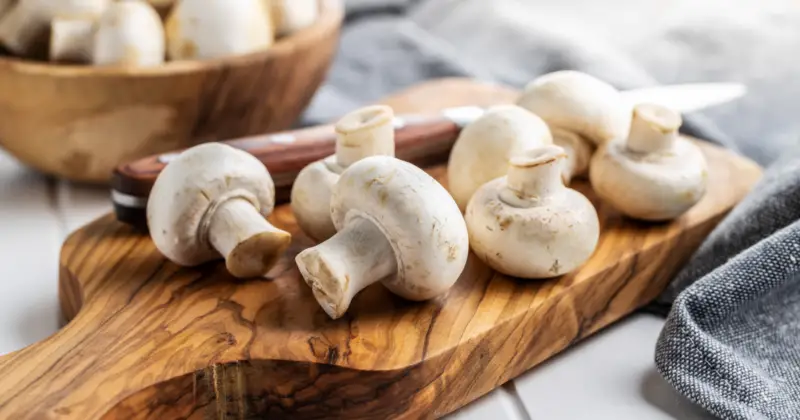
In conclusion, it is important to be cautious when it comes to feeding your pug mushrooms. While some store-bought mushrooms are not toxic to dogs, they don’t offer much in terms of nutritional benefits. Furthermore, many wild mushrooms can poison dogs, so it’s crucial to closely monitor your pug if they are sniffing around your yard or garden where mushrooms might be found.
As a responsible pug owner, it’s best to provide your pet with a well-balanced diet that includes foods specifically designed for their unique nutritional needs, as can be found in brands like Royal Canin Breed Health Nutrition Pug Dry Dog Food. This food is created specifically for the needs of purebred pugs aged 10 months and up, ensuring that they receive the necessary nutrients for a healthy life.
Additionally, when providing your pug with treats or snacks, consider choosing healthier alternatives like fruits, vegetables, and chews. These options provide your pet with nutritional benefits and are much safer than mushrooms.
In summary, it’s best to exercise caution when considering feeding your pug mushrooms and opt for safer, more nutritious food options that are specifically designed for their unique needs.
Frequently Asked Questions

Are mushrooms safe for pugs to consume?
Mushrooms can be safe for pugs to consume, but it depends on the type of mushroom. Some store-bought mushrooms, such as white button, cremini, and portobello, are typically safe for pugs to eat in moderation. However, wild mushrooms can be toxic to dogs and seriously risk your pug’s health. When in doubt, avoid feeding your pug mushrooms.
Is it okay for pugs to eat cooked mushrooms?
Yes, it is generally okay for pugs to eat cooked mushrooms, but only those varieties that are safe for dogs. Be sure to cook the mushrooms properly and avoid using any harmful ingredients, such as garlic, onions, or excessive amounts of salt and oil.
Can pugs eat mushrooms from the grocery store?
Pugs can eat certain types of mushrooms from the grocery store, such as white button, cremini, and portobello mushrooms. These mushrooms are considered safe for dogs when consumed in moderation. However, remember that not all mushrooms are safe for pugs, so it is essential to know which varieties you are feeding them.
Do store-bought mushrooms pose a danger to pugs?
While most store-bought mushrooms are safe for pugs, you must ensure they are not contaminated with harmful ingredients, such as garlic, onions, or strong spices. Overconsumption of mushrooms may also lead to stomach upset, so it is crucial to feed them in moderation.
How do certain mushrooms affect pugs’ health?
Certain mushrooms, particularly wild mushrooms, and some toxic store-bought varieties, can have negative effects on your pug’s health. These mushrooms can cause various symptoms, including vomiting, diarrhea, weakness, seizures, and liver and kidney damage. If you suspect your pug has ingested a toxic mushroom, seek immediate veterinary attention.
What should I do if my pug ate a wild mushroom?
If your pug has eaten a wild mushroom, it is essential to act quickly, as some wild mushrooms can be highly toxic to dogs. Monitor your pug for any signs of poisoning, such as vomiting, diarrhea, weakness, or difficulty breathing. Contact your veterinarian or an emergency animal clinic immediately for further advice and treatment.


